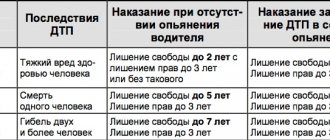Our country ranks not last in the world in terms of the number of people serving sentences in colonies. According to Rosstat, over the past 3 years, the leading position has been occupied by crimes against property, followed by crimes against the person (beatings, murder, etc.) and crimes in the field of drug trafficking.
At the same time, convicts have the right to be released before the appointed time. This is possible in case of impeccable behavior and compensation for harm. For early release, it is necessary not only to prove oneself well in the colony, but also to collect a number of documents and follow a certain procedure.
When to apply for parole
An application for early release is possible only after serving a certain part of the assigned sentence. Otherwise, the application will not even be considered. This period depends on the severity and nature of the crime committed.
So, you can be released early after serving the following terms:
- for crimes of minor and medium gravity - 1/3 of the term;
- for serious crimes - 1/2 term;
- for especially serious cases - 2/3 of the term;
- if the convicted person previously had his parole revoked – 2/3 of the term;
- for “sexual” crimes against minors, serious and especially serious crimes in the field of drug trafficking, crimes related to terrorism (Articles 205-205.5, 361 of the Criminal Code of the Russian Federation), for crimes as part of a criminal community (organization, participation, coordination (Article 210 of the Criminal Code of the Russian Federation)) - 3/4 of the term;
- for “sexual” crimes against minors under 14 years old - 4/5 of the term;
- if a life sentence is imposed - upon expiration of 25 years of the term served.
It is important to understand that this is only a formal basis, subject to which the application for early release will be accepted for consideration. The result of the review depends on the characteristics of the convicted person and a number of other factors (compensation for harm, the opinion of victims, psychological assessment of the individual, the presence of relapse, etc.).
Expungement of a criminal record
The presence/absence of a criminal record is of significant importance for the convicted person and the court. The size and duration of the punishment if a citizen commits a new act depends on this.
If a decision has been made on parole, the expungement of the criminal record is carried out based on the time served by the offender. It means that:
- If a person is charged with correctional labor, the criminal record can be cleared one year after release.
- If a punishment was imposed for an assault of minor/moderate severity - after 3 years; grave – after 8, and especially grave – 10 years.
This procedure applies only to basic penalties. If the court has granted parole with the retention of an additional sanction, the period for expunging the criminal record will begin after the end of the period for which it was imposed.
Who can apply for parole
An application for early release is made either by the convicted person himself or by a lawyer hired by him.
As a rule, relatives and friends try to help a convicted person serving a sentence. As part of such assistance, they independently send a petition either to the court or to the colony. But it is useless to do this, because, despite the relationship, they are not subjects of these legal relations. Simply put, the application will be returned without consideration.
Thus, the only way concerned relatives can help is to hire a lawyer to collect evidence and represent their interests.
Requirements for released prisoners
Many people believe that parole removes all obligations from the perpetrator. This is far from true. Release is called parole because the person is released with a number of restrictions. The main one is the duty not to break the law.
If during the unserved period the subject commits a new criminal or administrative violation, the parole will be canceled and the citizen will return to serve his sentence.
The court has the right to oblige a person:
- Get treatment for drug addiction, alcoholism or another disease.
- Do not change the place of study, work, or residence without prior notification of the authorized FSIN employee who controls the actions of those released on parole.
- Complete your studies or get a job.
- Do not visit places determined by the court in the verdict.
This list is not exhaustive. At its discretion, taking into account the circumstances of the case, the court has the right to impose other obligations on the released person.
How to apply for parole
An application for early release must be made in writing.
It must describe in detail why the convicted person no longer needs to be isolated from society.
Most importantly, it is necessary to indicate compensation for harm and repentance for what was done.
Next, indicate that the convict works in the colony, participates in the social life of the detachment, is positively characterized by the administration of the correctional institution, and has received incentives. It would also not be amiss to indicate guaranteed employment and living arrangements after release. At the end, we supplement the petition with a request to hold a court hearing with our participation.
The petition is submitted to the administration of the institution where the convicted person is being held. To receive various applications and correspondence, special departments have been created at correctional institutions.
After submitting such a petition, a representative of the colony administration (as a rule, this is the head of the detachment in which the convicted person is being held) collects all the necessary documents within 15 days.
Such documents include:
- Characteristics of the convicted person, where the administration gives its assessment of the possibility of release.
- Certificate of all incentives and penalties (including repaid ones).
- Psychological characteristics.
- Employment certificate.
- A certificate from the colony's accountant about the presence/absence of claims and other deductions, indicating the deductions made and the balance of the debt.
- A copy of the sentence under which the prisoner is serving the sentence.
- A certificate with the victim’s data (full name, address, telephone numbers), if the personal file contains a resolution to notify the victim about the consideration of the convicted person’s petitions related to the execution of the sentence.
- If at the time of consideration of the criminal case the convicted person was recognized as suffering from pedophilia, then the administration must provide information about the results of the medical measures taken against him (as a rule, this is the conclusion of the attending physician).
This is a mandatory package of documents, which will be collected by a representative of the colony.
After collecting all the documents, the administration sends the convicted person’s petition for consideration to the court to which the colony belongs territorially.
Some convicts send an application for parole in a closed envelope directly to the court, bypassing the special department. Most likely, this is done by those convicts who have existing penalties, or who are negatively characterized by the place where they are serving their sentence.
But you won't be able to outsmart the court. All the same, having received such a single petition, a request is sent to the colony to provide a mandatory package of documents.
Features of consideration of the application
The court must necessarily take into account the behavior of the prisoner, his attitude to study, work and to the crime committed. Also, attention should be paid to whether he compensated for part or all of the damage he caused; whether he made amends to the victim. All this must be contained in the conclusion of the administration of the institution involved in the correction of the offender.
If during the period of filing the petition the prisoner was transferred to another prison, then the consideration of his case is carried out at the place of his actual stay. All materials must be transferred to the body that will make a decision.
In addition to satisfying the claim, the court must also take into account the opinion of the victim. To do this, the prisoner sends him or his family a letter outlining an apology and the criminal’s attitude towards the crime. The victim must provide an answer, which is attached to the petition.
The court is obliged to take into account the presence of a place of residence or any connection with relatives. The behavior of the released person may depend on this. The bodies that make the decision do not have the right to make an unreasonable decision or refusal. It should be based only on the documents presented, facts, characteristics and research into the identity of the criminal.
The court cannot refuse the petition. However, he cannot reduce the outstanding part of the punishment. If the submitted materials are not properly prepared, the court has the right to return them.
The decision of the relevant authorities must be motivated, legal and justified. The conclusion and decision must contain a conclusion supported by facts. A copy of such a resolution must be sent to the administration of the prison or the body that is responsible for executing the punishment.
What materials need to be collected additionally?
In order to present themselves in a more favorable light, the convicted person and his lawyer will have to collect more characterizing material.
So, if a convict works in a colony, it is necessary to request a reference for him from the site foreman. Next, a lawyer comes into the case, who, when interacting with relatives, will collect the following documents:
Guarantees for household and work facilities
If the convicted person has his own home, he must provide title documents. If there is no housing, then you can get by with a letter of guarantee from the owner (with a certificate of title and a copy of the passport attached), who is ready to provide the convict with his housing and registration in it.
A guaranteed certificate of employment can be obtained if the relatives agree with the organization about hiring the convicted person after release. But if an agreement cannot be reached, then some employers (usually individual entrepreneurs) will be able to provide such a certificate for an additional fee. No one will check the validity of subsequent employment and household arrangements.
Household characteristics
The lawyer sends a corresponding request to law enforcement agencies, after which the local police officer will go to the address and interview relatives and neighbors. Or the relatives themselves can agree with their neighbors on a positive reference and have such a reference certified by the management organization.
Other characteristics
This may include references from a previous place of work, letters of gratitude, various certificates for sports and other cultural achievements.
Documents about marital status
If the convicted person is married and has children, we attach these documents to the case file. This characterizes him as a family-oriented and stable person.
Consent of the victim
In order for the victim to make a positive verdict regarding early release, it is necessary to interact with him.
First of all, make amends for the harm caused. In addition, you can pay some amount for moral compensation. After this, the relatives or the lawyer of the convicted person sit down with the victim at the negotiating table and persuade him to write consent for parole.
This is a very important factor, since recently the opinion of the victim is taken into account by the court when deciding on release.
All collected documents must be immediately attached to the application for parole.
Judicial procedure
So, the petition for early release is in court with all the documents collected on it. The time frame for consideration of such applications is not regulated by law, but, in practice, the courts try to consider them within one month and in one court session.
The court informs the convicted person, a representative of the colony administration, the prosecutor supervising correctional institutions, and the victim (if there is a corresponding written statement about informing the victim) about the time of the hearing.
If previously the whole judge went to the colony to conduct parole hearings, now there is a new technical opportunity to conduct a meeting via video link.
Special equipment is installed in all colonies and courts. Thus, if the convicted person wishes to attend the trial, his participation is ensured via video communication.
But it is still better to send your lawyer to the meeting. The personal participation of the representative is necessary at least so that he can attach any missing documents or familiarize himself with the materials that opponents will provide.
The chronology of the trial is as follows:
- The judge opens the hearing by announcing which particular petition will now be considered;
- The identity of the prosecutor, the convicted person, the colony representative, and the victim is established;
- The parties are explained their rights. They can challenge the judge, secretary, prosecutor, get acquainted with all documents submitted to the court, make motions (for example, ask to include documents, examine some evidence, interview someone, etc.), give their explanations, conduct their affairs through representative lawyer.
- Participants in the process are asked about the presence of requests, and they are resolved (for example, at the request of a lawyer, documents are attached).
- The petition for parole itself is read out, and the convict and his lawyer, the representative of the colony, and the victim are given the floor. Participants in the meeting may ask questions on the merits of the application being considered.
- The materials and documents presented to the court are examined.
- The judge hears the prosecutor's opinion on the possibility of release.
- Removal of the court to the deliberation room to make a decision.
- On the same day, the judge makes a decision in the form of a ruling and announces its contents.
- After the announcement, the procedure for appealing the decision is explained.
Criteria for early release
When deciding on the possibility of early release, attention is paid to the following points:
- Conduct of the convicted person throughout the entire term served. This includes all incentives and all penalties (even if they were repaid a long time ago), taking into account their dynamics, balance (what is more and what is less) and prescription.
- Characteristics from the administration of the colony. Here everything depends on the number of penalties and rewards, the participation of the convicted person in cultural events, training at the correctional institution, employment, and attitude towards representatives of the colony (respectful or dismissive). That is, a good character still needs to be earned; it is not enough that the convict is good in himself, and, it seems, ended up in the colony by accident.
- Characteristics of a psychologist. It is impossible to “earn” a positive description of such a plan. The psychologist conducts tests, analyzes the tendency to relapse and the possibility of the convicted person in the future to control himself and not commit crimes. In addition, the psychologist can draw conclusions about the attitude of the convicted person to his offense, whether he has repented or is indifferent.
- Production characteristics. Undoubtedly, working convicts have a significant advantage over those who do not work in their chances for parole. Firstly, there will be another positive reference from the employer. Secondly, a working convict thereby demonstrates a desire for speedy compensation for harm.
- Compensation for damage. Ideally, all property claims should be settled by the time of parole. However, if the court sees regular transfers of funds to the victim, this will also tip the scale of justice towards a positive decision. Earnings in the colony are small, but the judge will see that the convicted person, to the best of his ability, compensates for the damage. Upon release, the convicted person will have a better chance of getting a job, and, accordingly, pay off all claims faster.
- Repentance. It is better to support your attitude towards the committed act with some weighty arguments. Repentance, in particular, may be evidenced by compensation for damage, other material support (for the restoration of health, moral damage, payment for clothing or food kits, etc.), and an apology to the victim.
- Victim's opinion. This is one of the most important factors, since the courts especially listen to the opinion of the injured party. Based on the gravity of the act committed, and taking into account the opinion of the victim, the court may refuse release, even if there are positive characteristics. Therefore, it is imperative to establish contact with the victim through relatives or a lawyer.
- Guarantees of labor and household conditions. This is not a mandatory requirement when considering an application for parole. However, in practice, in order to make a final decision, it is important for the courts to make sure that a person has housing and work. This will serve as a guarantee that after release the former convict will not commit a crime again.
Thus, the courts make a decision based on the behavior of the convicted person after the crime was committed.
The main arguments here will be the characterizing materials presented from the colony. All documents that the convicted person himself will present will be of secondary importance, but they must be taken into account by the court when making a decision. Lawyer Kristina Shekina comments on the main features of obtaining parole
Nuance
As mentioned above, the legislation establishes the requirement for compensation for damage as mandatory for release. If the court determines that the perpetrator does not have the opportunity to actually compensate for the harm, then the issue can be resolved without fulfilling this condition. This situation, for example, can arise if a citizen does not have a job in a colony, cannot perform work due to disability, etc.
Parole does not require a confession of guilt by the convicted person.
Court statement
The judge is obliged to issue a ruling to the participants in the process on the day it is issued. It is sent to the convict at the place where he is serving his sentence; accordingly, it will not be possible to receive it in his hands as quickly as we would like. This is why the involvement of a lawyer in the case is so important.
While present at the trial, he will be able to immediately receive the decision in his hands, familiarize himself with its contents, and, in case of a negative decision, timely file a complaint.
The resolution will come into force in 10 days. This period begins from the day when the convicted person in the colony is served with the decision.
If the application is granted, the judge releases the convicted person for a reason and imposes certain restrictions. The most common restrictions include a ban on changing the place of residence indicated upon release, as well as changing the place of work without notifying the supervisory authority; prohibition to stay outside the home at night.
The district police officer is required to control the behavior of the convicted person and record all violations committed.
In addition, early release imposes a certain responsibility on the convicted person for the period until the remainder of the unserved sentence expires.
Conditional release may be revoked in the following cases:
- Committing an administrative offense;
- Failure to fulfill the duties that the court assigned to the convicted person upon release;
- Committing crimes of minor and moderate gravity, or a “careless” crime (Articles 109, 118, 168 of the Criminal Code of the Russian Federation);
- Committing grave and especially grave crimes (parole is revoked without fail).
The convicted person is released after the decision enters into legal force, on the same day. No delay is allowed.
What to do in case of refusal
If a refusal decision is made, two mechanisms can be used:
Appeal the decision.
It can be appealed within 10 days from the date of receipt. The complaint is filed with the court that issued the refusal decision. A common ground for appeal is that the decision was unfair. But a detailed review of the case may reveal other violations that can be pressed on in a complaint.
These include, in particular:
1.1 Violations of notification rules.
All participants in the process must be notified of the court hearing at least 14 days in advance. In practice, courts often violate these deadlines.
Considering the large flow of incoming applications, there is a high probability that the notification of the convicted person took place much later, for example, not 14, but 10 days in advance.
When familiarizing yourself with the case materials, the lawyer must use photographic equipment to record a receipt indicating when the convicted person received the summons.
Such a receipt may not be included in the file (it was forgotten, lost among others).
Therefore, the complaint must indicate that due to improper notification, the convicted person’s right to defense was violated. Simply put, he failed to adequately prepare for the trial.
1.2 Absence of a lawyer at trial.
Mandatory participation of a lawyer is assumed if:
- the convicted person does not refuse it;
- if the convicted person is a foreign citizen and he does not understand Russian well;
- if a person is convicted under an article the sanction of which provides for more than 15 years of imprisonment.
The refusal of a lawyer must be in writing. If such a statement does not appear in the case materials, the complaint must certainly indicate that the right to defense has been violated.
And in two other cases, the absence of a lawyer is a violation. But our courts often forget that the general rules of criminal law also apply to motions considered after a verdict has been passed. Therefore, an appointed lawyer is rarely present in such courts.
1.3 Absence of an interpreter in court.
This applies to foreign citizens. And even if a foreigner speaks Russian well, citizenship of another country will be a definite trump card when filing a complaint. The complaint must indicate that the convicted person did not understand anything due to the language barrier, and was unable to fully defend himself.
1.4 Lack of protocol.
Sometimes this happens. Perhaps this protocol exists in nature, but the secretary simply forgot to file it with the file. This is an ironclad basis for remanding the case for a new trial.








